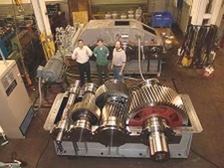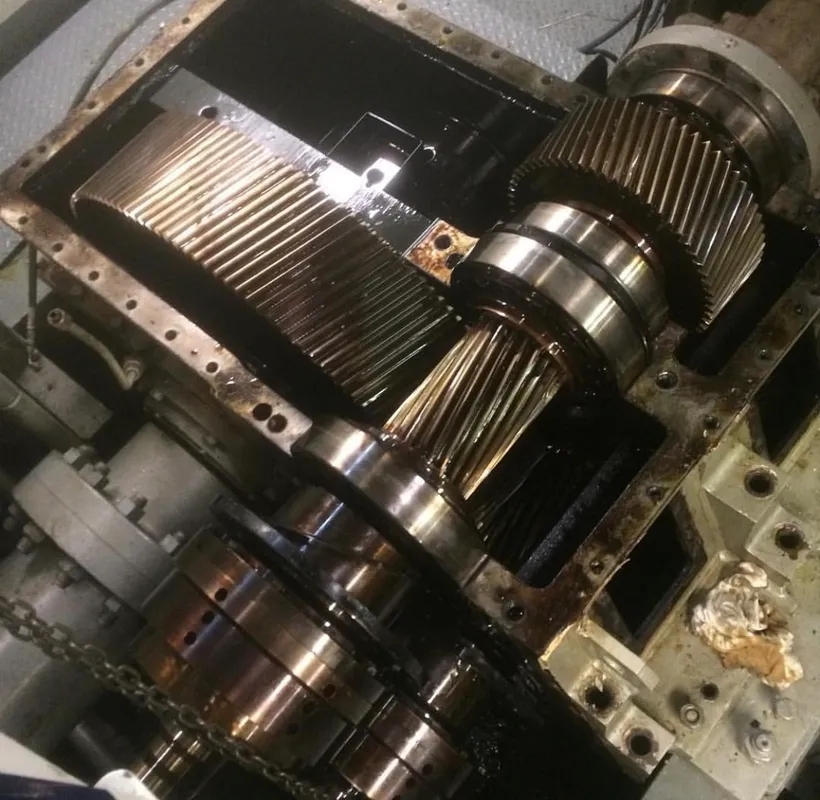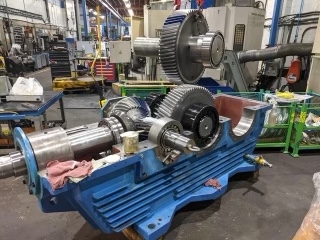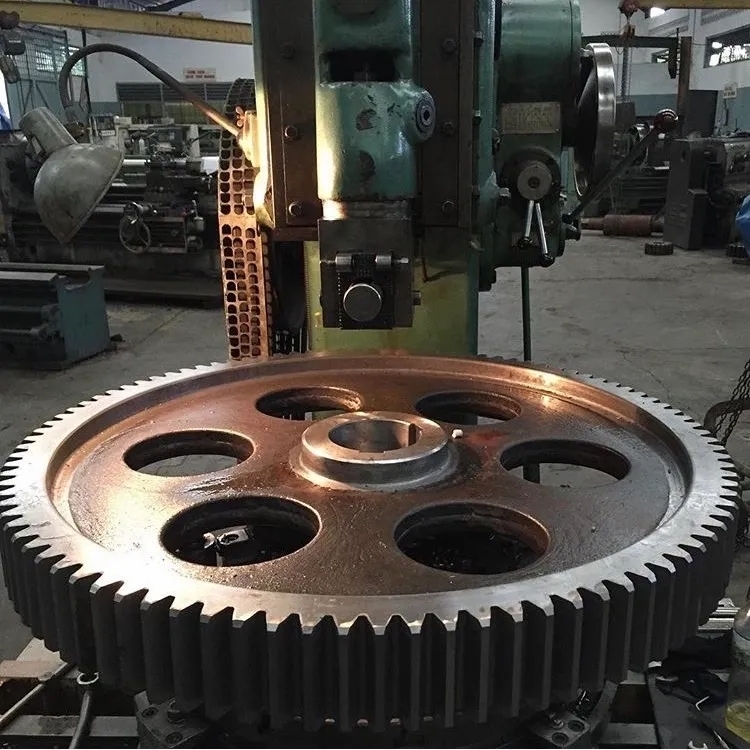

The recommended frequency for replacing the blade on a glass cutting table can vary depending on the usage and the type of material being cut. In general, it is advisable to replace the blade every 6 months to a year for optimal performance and safety. Regular maintenance and inspection can help determine when a blade is no longer effective and needs to be replaced.
Determining if a glass cutting table blade needs to be replaced involves several factors. Signs that indicate a blade replacement may be necessary include decreased cutting efficiency, chipping or dulling of the blade, and rough edges on the cut glass. Additionally, if the blade starts to produce excessive noise or vibrations during cutting, it may be time for a replacement.
Tompkins County poised for manufacturing boom with Menlo Micro and Micron investments “Menlo Micro announced a significant investment of over $50 million to establish a fabrication facility in Lansing, near Ithaca, New York, signaling a major boost for the local manufacturing workforce.” Read more Plug Power wins $75 million grant from DOE “The Latham hydrogen … NYS Manufacturing and Tech News 3.11.24 Read More »
Posted by on 2024-03-15
We continue our blog series on the great work of our New York State assets in Advanced Materials across the state. This week, we feature the work of Rensselaer Polytechnic Institute (RPI) in Troy, NY, and their work on next generation building technology with an aim to decarbonize the built environment. This includes working with … Advanced Materials Strengths and Assets in NYS: Focus on Rensselaer Polytechnic Institute Read More »
Posted by on 2024-02-28
Embark on an enlightening exploration of New York’s economic transformation with special guest Alyson Slack from MRB Group, as we uncover the past and present of the state’s manufacturing sector. Together with FuzeHub’s Steve Melito we chart the course from a robust production history to a burgeoning service-oriented economy, all while acknowledging manufacturing’s lasting contributions … Podcast: Building Better Economies Read More »
Posted by on 2024-03-18
New $25M beauty manufacturing and innovation hub for Black- and women-owned businesses coming to Brooklyn Navy Yard “The Brooklyn Navy Yard is set to be home to a new $25 million state-of-the-art manufacturing, incubator, and accelerator facility focused on helping Black- and women-owned health and beauty businesses launch and grow in New York City.” Read … NYS Manufacturing and Tech News 3.4.24 Read More »
Posted by on 2024-03-08
In our third feature in our New York State Assets blog series on Advanced Materials, we focus on the groundbreaking work at the University at Buffalo. Their Department of Materials Design and Innovation focuses on accelerating lab discoveries into practical engineering applications. They are pioneering new approaches in material science education and research, leveraging technologies … Advanced Materials Strengths and Assets in NYS: Focus on University at Buffalo Read More »
Posted by on 2024-03-06
When replacing the blade on a glass cutting table, specific safety precautions should be followed to prevent accidents and injuries. It is essential to wear protective gear such as gloves and safety goggles to shield against any potential hazards. Additionally, ensuring that the machine is turned off and unplugged before replacing the blade is crucial to avoid any mishaps.

There are different types of blades available for glass cutting tables, each designed for specific purposes and materials. Some common types include diamond blades, carbide blades, and high-speed steel blades. Diamond blades are known for their durability and precision in cutting hard materials like glass, while carbide blades are suitable for softer materials. High-speed steel blades offer a balance between durability and cost-effectiveness.
While it is possible to replace the blade on a glass cutting table independently, it is recommended to use a professional service for this task. Professionals have the expertise and tools necessary to ensure a safe and accurate blade replacement. They can also provide guidance on choosing the right type of blade for specific cutting needs, ultimately leading to better results.

To extend the lifespan of a blade on a glass cutting table, regular maintenance is key. Keeping the blade clean and free of debris after each use can prevent premature wear and damage. Additionally, storing the blade properly in a dry and secure location when not in use can help maintain its sharpness and effectiveness over time.
The material being cut plays a significant role in determining the choice of blade for a glass cutting table. Different materials have varying hardness levels, which require specific blade types for optimal cutting performance. For example, cutting thick or tough glass may require a diamond blade for precision and efficiency, while softer materials may be better suited for carbide blades. Understanding the material properties is essential in selecting the right blade for the job.

To ensure accuracy in equipment repairs, the technicians at the repair facility follow a strict protocol that includes conducting thorough diagnostic tests, utilizing specialized tools and equipment, referencing technical manuals and schematics, and staying up-to-date on the latest industry standards and best practices. They also undergo regular training and certification programs to enhance their skills and knowledge in repairing a wide range of equipment types, such as electronic devices, machinery, and appliances. Additionally, the technicians document all repair processes and outcomes meticulously to track the progress and ensure quality control. By adhering to these measures, the repair facility can guarantee accurate and reliable repairs for their customers.
The company provides comprehensive on-site repair services for a wide range of heavy machinery, including excavators, bulldozers, cranes, and loaders. Our team of experienced technicians is equipped to handle repairs, maintenance, and troubleshooting for various types of heavy equipment. With specialized knowledge in hydraulic systems, engines, and electrical components, our technicians can efficiently diagnose and address any issues that may arise. Additionally, we offer preventative maintenance services to ensure that your machinery operates at peak performance and minimizes downtime. Whether it's a minor repair or a major overhaul, our on-site repair services are designed to keep your heavy machinery running smoothly and efficiently.
Yes, our company provides specialized repair services for industrial shredders. Our team of experienced technicians is trained to handle a wide range of issues that may arise with industrial shredders, including motor malfunctions, blade replacements, jammed feed mechanisms, and electrical problems. We use advanced diagnostic tools and high-quality replacement parts to ensure that your industrial shredder is restored to optimal working condition. Additionally, we offer preventative maintenance services to help prolong the lifespan of your equipment and minimize the risk of future breakdowns. Trust our experts to provide efficient and reliable repairs for your industrial shredder.
Yes, the technicians at the CNC machining center repair facility are highly skilled in repairing specific models of CNC machining centers. They have expertise in working with various brands and models, including Haas, Mazak, Okuma, and Fanuc. These technicians are trained to diagnose and troubleshoot issues with precision, ensuring that the CNC machining centers are restored to optimal working condition. Additionally, they have access to specialized tools and equipment to efficiently repair any mechanical, electrical, or software-related problems that may arise. Whether it's a spindle issue, axis alignment problem, or control system malfunction, the technicians at the CNC machining center repair facility have the knowledge and experience to address the specific needs of each model.
Industrial chiller maintenance services typically include tasks such as regular inspections, cleaning of condenser coils, checking refrigerant levels, monitoring for leaks, adjusting controls, calibrating sensors, lubricating moving parts, replacing worn-out components, testing safety features, and conducting performance evaluations. Additionally, preventive maintenance measures may involve analyzing system efficiency, optimizing energy consumption, implementing predictive maintenance strategies, and ensuring compliance with industry regulations. Proper maintenance of industrial chillers is crucial to prevent breakdowns, extend equipment lifespan, improve operational efficiency, and minimize downtime. Specialized technicians with expertise in refrigeration systems are often employed to perform these maintenance tasks to ensure optimal performance and reliability of industrial chillers.
Specialized robotics used in manufacturing processes require a high level of expertise to service effectively. Technicians must be well-versed in programming, maintenance, troubleshooting, and repair of industrial robots, automated machinery, and robotic systems. They need to have a deep understanding of mechatronics, control systems, sensors, actuators, and other related technologies. Additionally, familiarity with PLCs, HMIs, SCADA systems, and industrial communication protocols is essential for diagnosing and resolving issues with these advanced robotics. Continuous training and staying up-to-date with the latest advancements in robotics technology are crucial for providing top-notch service to manufacturers relying on these specialized machines.